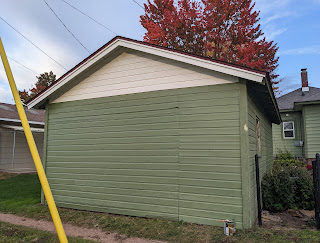EvenAfterAll this timeThe Sun never says to the Earth,“You owe Me.”LookWhat happensWith a love like that,It lights the Whole Sky.~ Hafiz
I recall reading once that early peoples would have been terrified by an eclipse. Was the sun angry? Had they done something wrong? Would it return? I didn’t think about it at the time but older now, maybe wiser, I think, sure, they were afraid the first time. After that, it was just another (rare) part of life.
August 21, 2017. White-knuckled I drive through a near-empty stretch of Nebraska.
Months earlier, I’d suggested a road trip through Utah and New Mexico to my daughter and been surprised by her keen interest in seeing the solar eclipse. We researched the best places to view it. Tennessee didn’t interest me and since I longed to show Kay the southwest, we settled on Nebraska (on the way to Utah’s National Parks). The Thursday before departure, trusting I’d done all I could to ready the church for two weeks pastorless, I returned to the house and packed the car. The next day, Kay and I met in Appleton, touched up our Ren Faire costumes, and hung out. Having just moved to a different church in July, I worked to decompress so that I could be fully present and enjoy this vacation with my college-aged daughter.
Five years later, the details of our adventures are fuzzy. I recall spending the night in Milwaukee prior to heading to the Bristol Renaissance Faire. In the rush of costuming the next morning I misplace my credit card, recalling only after canceling it that I’d stuck it in my bodice. We enjoy Ren Faire, finding it as lively with music and entertainments as ever. Around 4:00, hot and tired, we begin our trek south and west, eating along the way and arriving at the Airbnb after dark.
The next thing I recall is on the morning of the eclipse. Having left O
 maha, Nebraska behind, we're sailing along on I-80 making good time when we encounter a wall of traffic. Where did all the cars come from? We're in the middle of nowhere! Slowing to a crawl – eight to thirty miles per hour – my anxiety skyrockets. The eclipse is at 1:04 local time and while I don't care one way or the other about that, Kay has her heart set on seeing it. Ninety minutes later the highway magically clears. We make up some time but won't make it to our destination.
maha, Nebraska behind, we're sailing along on I-80 making good time when we encounter a wall of traffic. Where did all the cars come from? We're in the middle of nowhere! Slowing to a crawl – eight to thirty miles per hour – my anxiety skyrockets. The eclipse is at 1:04 local time and while I don't care one way or the other about that, Kay has her heart set on seeing it. Ninety minutes later the highway magically clears. We make up some time but won't make it to our destination. We drive until the world begins to darken then, taking the next exit, pull into a vacant junkyard surrounded by corn fields. Laughing in excitement, we hop out of the car. The moments that follow as daylight disappears change my opinion about the wonder of seeing a solar eclipse. Laughter continues to abound, in part because the experience is beyond words. What I had dismissed with indifference turns out to be a once-in-a-lifetime experience. I’m grateful for Kay's persistence in voicing her desire to see it. (The rest of the vacation is good though since Google Maps’ estimated travel times are based on traveling 15-20 mph beyond the speed limit  we are always behind schedule.)
we are always behind schedule.)
 we are always behind schedule.)
we are always behind schedule.)Later this fall, the Wausau Lyric Choir will sing Hafiz’s poem set to music by Joseph Martin. I suspect few members of this ensemble (founded as a Lutheran choir) will know they were written by a 14th-century Persian Moslem poet.
“Even. After. All this time.” As we breathed these words during our initial read-through, my heart was captivated. The sun never says, You owe me. Imagine if it did. If it could. We do owe. Our very existence. To the sun’s warmth and energy. How seldom I think of this. How infrequently am I grateful for this source that makes all else possible. Still caught by the words’ essence yet slow to warm to the second half of the poem, I acknowledge that initially it seemed too Christian for me. Learning the origin of the words helped me to embrace their universal meaning. God, Allah, Source, the Universe, however we name it, we are recipients of life. We are – all of creation – blessed by a love, an endless intention for well-being, that surpasses the imagination’s ability to grasp.
With a love like that
Anything is possible.










